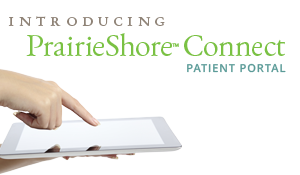Intercostal Nerve Block
What is an intercostal nerve block?
An intercostal nerve block is an injection around the intercostal nerves that are located under each rib. The injection reduces the inflammation and/or swelling of tissue around these nerves, which helps relieve pain and other symptoms in the chest area. Herpes zoster (shingles pain) of the chest and chronic post-surgical pain after a chest surgery are common reasons to consider intercostal blocks. Intercostal nerve blocks also can be used to help diagnose the source of pain.
How is an intercostal nerve block done?
First, you may be given an intravenous medication to relax you. Then, you’ll lie on your side — the one not causing pain. Then doctor will use antiseptic to clean an area of skin near your ribs. Then he or she will:
- Insert a thin needle under your rib and inject anesthetic to numb the area
- Use x-ray guidance to insert a second needle and inject a steroid pain medication
Usually, the procedure takes less than 30 minutes, and you can go home the same day.
How effective is an intercostal nerve block?
Immediately after the injection, you may feel that your pain may be gone or quite less. but the pain may return a few hours later as the anesthetic wears off. You may have a sore spot for a day or two. Longer term relief usually begins in two to three days or up to a week, once the steroid begins to work. How long the pain relief lasts is different for each patient. For some, the relief lasts several months. If the treatment works for you, you can have periodic injections to stay pain-free. If you do not experience any relief in 10-14 days, speak to you physician about other options.
What are the risks?
Complications from an intercostal nerve block are uncommon. However, there could be bruising or soreness at the injection site, infection, collapsed lung, nerve damage and bleeding. Generally speaking, this procedure is safe. However, with any procedure there are risks, side effects and possibility of complications.
How would I know if I had a collapsed lung?
Because of the size of the needle used, a lung usually does not collapse quickly. It may take several hours or the better part of the day. If, after the block, you feel winded or cannot seem to catch your breath or are gasping for air, a collapsed lung should be suspected. You should seek prompt transportation to the nearest Emergency Room where a chest x-ray can confirm the suspicion of a collapsed lung.
Who should not have an intercostal nerve block?
If you are allergic to any of the medications to be injected, if you are on a blood thinning medication, if you have an active infection, or if you have poorly controlled diabetes or heart disease, you should speak with the doctor about your specfic situation. You may need special instructions, lab testing, or perhaps need to reschedule. Likewise, if you have very poor lung function and would have great difficulty with a collapsed lung, an intercostal block may not be the treatment of choice.
What happens after the procedure?
Do not drive or do any rigorous activity for 24 hours after your intercostal nerve block. You may want to apply ice to the injected area. Take it easy. You can return to your normal activities the next day. You will rest for a while in the office. Most patients can drive themselves home. Unless there are complications, you should be able to return to work the next day. You can continue your regular diet and medications immediately.
Is an intercostal nerve block right for you?
An intercostal nerve block may be right for you if you have persistent pain in the chest area — especially due to shingles or a surgical incision — which does not respond to other treatment. Contact us for more information!
At PrairieShore™ Pain Center, our goal is to relieve your pain and improve your quality of life. If your primary physician has advised you to see a specialist for your pain, turn to us for help. To schedule your appointment, please contact us here or give us a call at (847) 883-0077.







